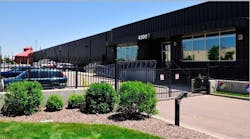Denver Emerges as Fiber-Rich Regional Colocation Hub
We continue our series of stories on the leading geographic markets for data center space. Data Center Frontier is partnering with datacenterHawk to provide in-depth market reports on each city we profile. This time, we visit the Denver Data Center Market, one of the fastest-growing technology ecosystems in the U.S. The first post in our series provides a market view and analysis of the growing collocation market.
Download the full report.
Digital transformation is boosting the importance of IT infrastructure for businesses of all sizes, in all markets. Denver is a prime example of a “second tier” digital hub driven by demand from local businesses with growing requirements for data center space. The Mile High City has one of the fastest-growing technology ecosystems in the United States and is home to numerous colocation providers, carriers, technology companies, IT services providers, and regional/HQ in-house data centers.
Denver is a major U.S. fiber hub, acting as a central relay point that connects West Coast backbones and end users to major Midwest and East Coast markets. After establishing an early reputation as a prime location for data backup, Denver has emerged as a regional market for retail colocation, supporting both enterprise and service provider customers. In recent years, data center companies have begun building larger data centers in the Denver region, and offering wholesale space.
The Denver market is home to 750,000 square feet (SF) of commissioned data center space, representing 71 megawatts (MW) of commissioned power, according to market research from datacenterHawk.
With the proliferation of IoT comes increased demand for increased density in communications infrastructure, specifically in regional business markets like Denver.
Even though Denver is not one of the largest data center markets, it benefits from a strategic location, and is likely to gain a higher profile as America’s IT infrastructure becomes more distributed. Data center development has traditionally been focused on six to eight markets: Northern Virginia, Silicon Valley, New York/New Jersey, Chicago, Dallas, Atlanta, Phoenix and Los Angeles.
That is changing as the U.S. economy feeds off the momentum created by digital transformation, artificial intelligence and the Internet of Things. IoT device performance is dependent on limiting network latency. With the proliferation of IoT comes increased demand for increased density in communications infrastructure, specifically in regional business markets like Denver, that are already important destinations for data backhaul. Denver and similar markets will play a big role in the next stage of digital transformation as aggregation points for IoT data and analytics.
Positioned to Benefit from IoT, 5G
As edge computing and 5G wireless gain broader adoption, markets like Denver will be positioned to store and transfer increasingly large data sets. This could translate into moderate gains in demand for data center and colocation services. A key factor for this market will be how Denver colocation providers manage supply and demand. Maintaining a healthy balance of inventory is important in every market, but looms larger in regional cities with a strong competitive landscape. This is magnified as the industry adds more wholesale capacity to markets like Denver without a large base of enterprise organizations to support it compared to top tier US population centers.
Although Denver has a strong economy, the area only boasts 10 Fortune 500 companies, none within the top 100. This may be due to taxes. Denver’s sales tax (8%), income tax (4.8%), and property tax (7.7%) are all higher than the national average.
Today, users are looking for highly connected data centers able to provide low-latency services to a wide area, making Denver an ideal location for data center development and network PoPs (points of presence).
Despite higher costs of living and doing business in Denver, the area’s economy continues to grow, with the labor force increasing by nearly 12.5% in the last five years according to the Bureau of Labor Statistics. During that same span, Denver’s IT workforce grew by roughly 13%. Additionally, Denver has a low unemployment rate of 3%, besting the 3.5% national average.
The Denver region’s largest industries are healthcare, IT/software, and telecommunications according to research on industry clusters from the Metro Denver Economic Development Corporation. An emerging growth driver is aviation and aerospace, which saw the strongest percentage growth in the Denver area from 2016-18. As a central hub for the western United States, transportation is one of Denver’s largest industries and acts as stopping-point for all goods and services transported throughout the area.
Network Investments Position Denver for Growth
In the same vein, Denver can function as a hub for all telecommunication in the western United States. This is a primary factor drawing data center development to Denver. Today, users are looking for highly connected data centers able to provide low-latency services to a wide area, making Denver an ideal location for data center development and network PoPs (points of presence).
This has been reflected in local infrastructure development. AT&T invested $325 million from 2014-17 to enhance Denver’s wireless coverage, and Sprint has also beefed up its local network. In 2017, Verizon named Denver as one of 11 cities around the country to serve as testbeds for its commercial 5G offerings.
It is also notable that the Mile High City is a hub for headquarters for leading telecom and data center operators, including CenturyLink/Level 3 (Broomfield), Zayo (Boulder), EdgeCore (Denver) and CoreSite (Denver).
The Denver Data Center Market Report will also cover the following topics for the city in the coming weeks:
- Trends in Supply
- Trends in Demand
- Business Environment
Download the full Data Center Frontier “Denver Data Center Market” special report, courtesy of Iron Mountain Data Centers.
About the Author


